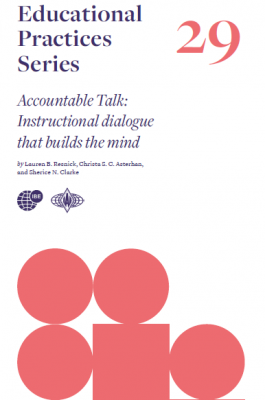Date Published:
2016
Abstract:
There is increasing consensus among psycho-educational scholars about argumentation as a means to improve student knowledge and understanding of subject matter. In this paper, we argue that, notwithstanding a strong theoretical rationale, causal evidence is not abundant, definitions of the objects of study (argumentation, learning) are often not well-defined, and the variance in research methods is large. In this article, we systematically review the available research evidence by mapping it on the Argumentation For Learning (AFL) research framework, which specifies the different antecedents, dialogue characteristics, and learning outcomes of argumentation. In doing so, we identify claims that are supported with substantive empirical evidence and demonstrate which questions are still open to further empirical examination. We also uncover several promising, relatively unexplored venues for future research.
Publisher's Version




